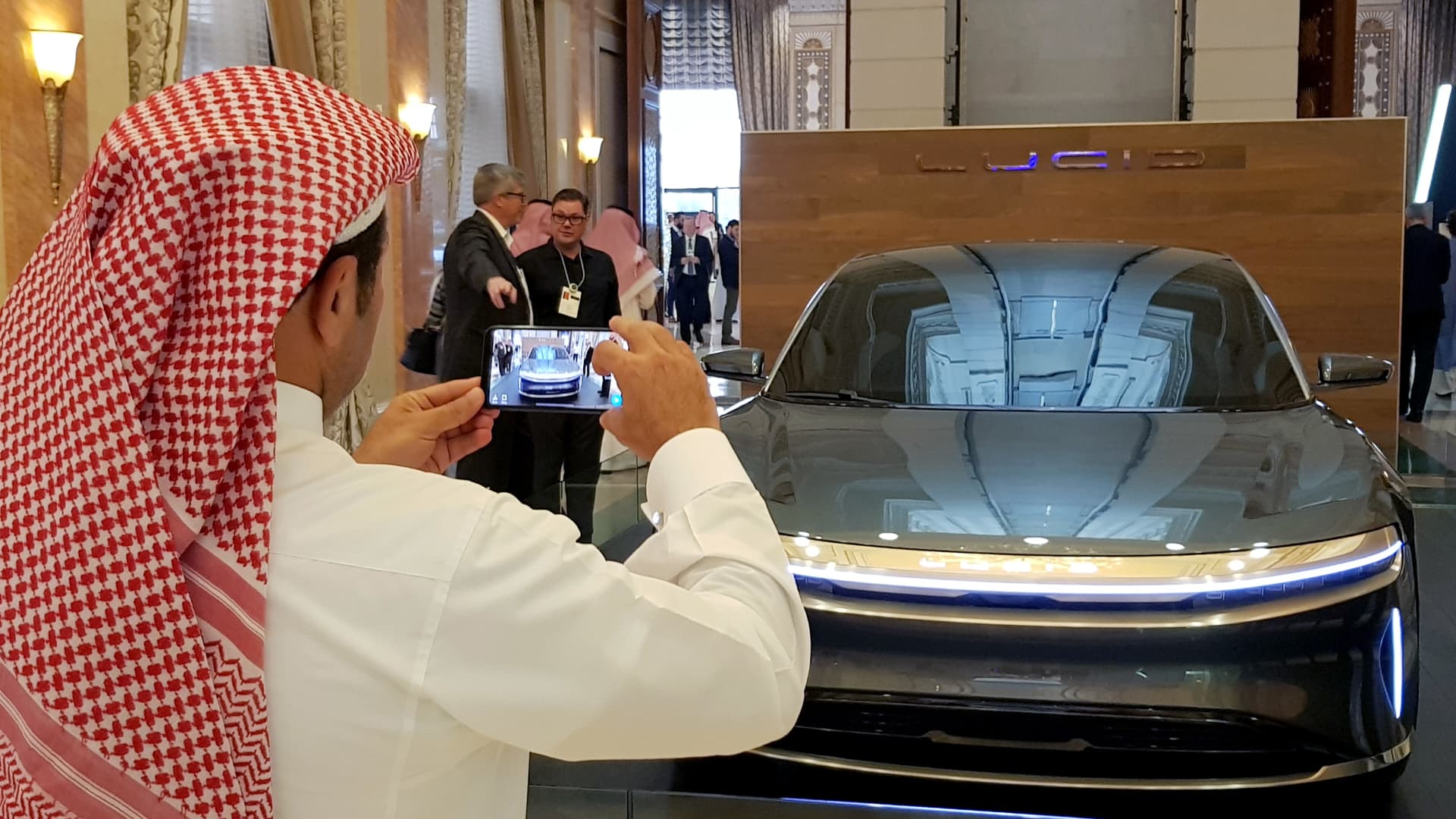
U.S. electric vehicle maker Lucid Group will set up its first overseas factory in Saudi Arabia, the company announced.
Javier Blas | Bloomberg | Getty Images
U.S. electric vehicle maker Lucid Group will set up its first overseas factory in Saudi Arabia, the company has announced.
The manufacturing facility will be able to produce 155,000 vehicles a year, and will initially serve the local market, the luxury car maker said in a press release Wednesday. The vehicles will later be exported to global markets.
Lucid’s factory in Arizona can produce 350,000 units a year.
“That means we can accelerate plans to produce half a million cars a year from what was going to be 2030, to mid decade,” CEO Peter Rawlinson told CNBC’s Hadley Gamble. “And that’s really important because the planet can’t wait.”
The ongoing energy crisis “really just fuels the transition to battery electric vehicles,” said Rawlinson.
“The demand is now multiplying,” he said.
EV industry ambitions
Saudi Arabia’s minister of investment, Khalid al-Falih, said the Lucid factory is just the beginning.
“I believe it unleashes the whole industry of electric vehicles here in the kingdom, our intent is not to stop with Lucid,” he told CNBC’s Hadley Gamble.
“We have other EV manufacturers that are in advanced discussions with us that will follow in the footsteps of Lucid,” he added.
Saudi Arabia also wants EV battery companies, suppliers and more to set up shop in the country, which could create 30,000 jobs, he said.
“We believe, like I said, that this is a catalytic investment decision … it’s a magnet that will attract a lot of other investors,” al-Falih said.
Lucid’s Rawlinson said the company would want to produce more than electric cars in Saudi Arabia, and pointed to energy storage systems that could be linked to solar photovoltaic farms.
“This technology is ideal for this part of the world,” he said. “Because remember, when the oil runs out, the sun will keep shining.”
As of 2021, Saudi Arabia was the world’s second largest producer of oil, according to the U.S. Energy Information Administration. It also has 297.5 billion barrels in oil reserves, second only to Venezuela, a World Population Review ranking said.
The kingdom’s state oil company, Aramco, saw its net income spike 82% to $39.5 billion in the first quarter of 2022.
Al-Falih said the world still needs to invest in both fossil fuels and renewables to make the energy transition as smooth as possible.
He said Saudi Arabia is committed to its shift from traditional fuels to cleaner energy, citing the kingdom’s green initiatives.
— CNBC’s Dan Murphy contributed to this report.




